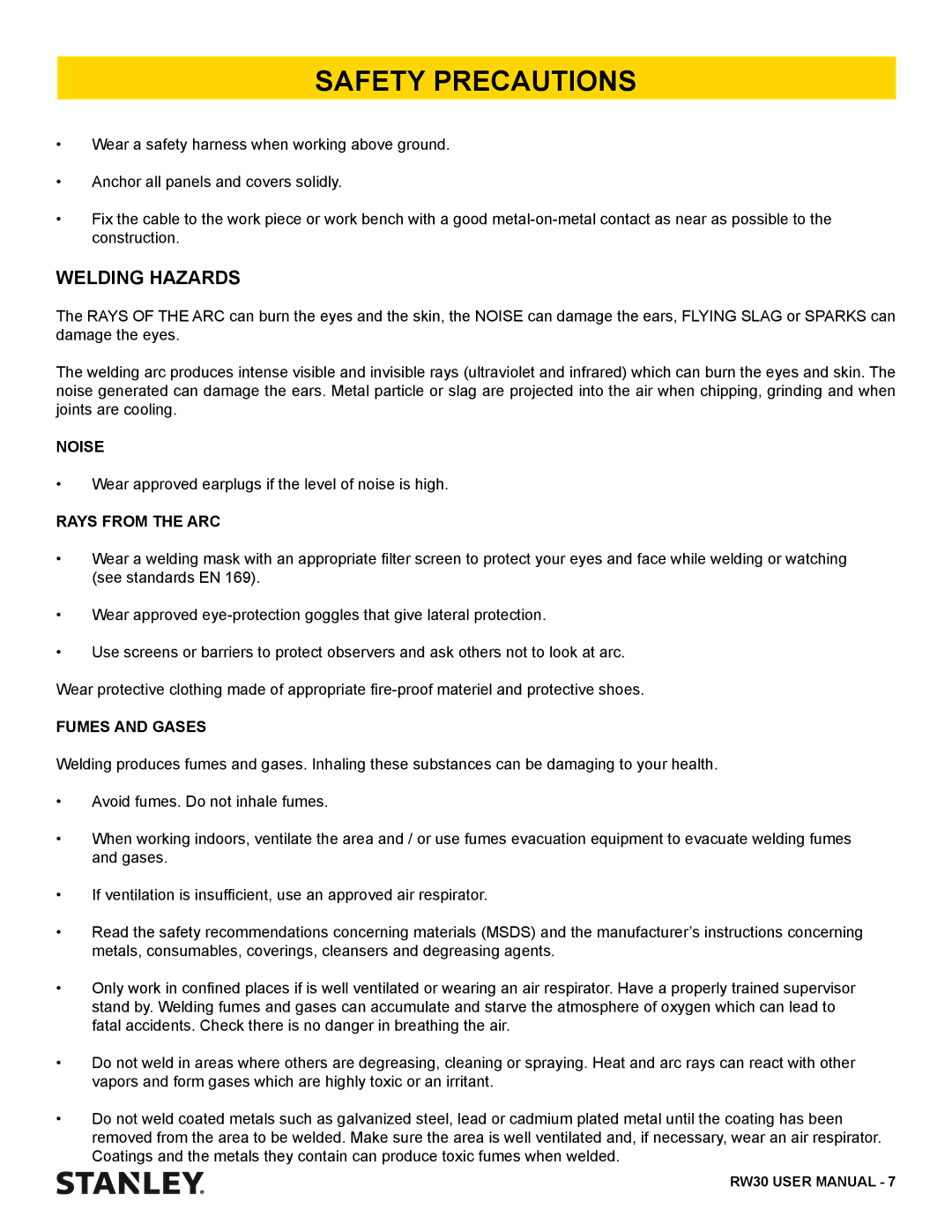
SAFETY PRECAUTIONS
•Wear a safety harness when working above ground.
•Anchor all panels and covers solidly.
•Fix the cable to the work piece or work bench with a good
WELDING HAZARDS
The RAYS OF THE ARC can burn the eyes and the skin, the NOISE can damage the ears, FLYING SLAG or SPARKS can damage the eyes.
The welding arc produces intense visible and invisible rays (ultraviolet and infrared) which can burn the eyes and skin. The noise generated can damage the ears. Metal particle or slag are projected into the air when chipping, grinding and when joints are cooling.
NOISE
•Wear approved earplugs if the level of noise is high.
RAYS FROM THE ARC
•Wear a welding mask with an appropriate filter screen to protect your eyes and face while welding or watching
(see standards EN 169).
•Wear approved
•Use screens or barriers to protect observers and ask others not to look at arc.
Wear protective clothing made of appropriate
FUMES AND GASES
Welding produces fumes and gases. Inhaling these substances can be damaging to your health.
•Avoid fumes. Do not inhale fumes.
•When working indoors, ventilate the area and / or use fumes evacuation equipment to evacuate welding fumes and gases.
•If ventilation is insufficient, use an approved air respirator.
•Read the safety recommendations concerning materials (MSDS) and the manufacturer’s instructions concerning metals, consumables, coverings, cleansers and degreasing agents.
•Only work in confined places if is well ventilated or wearing an air respirator. Have a properly trained supervisor stand by. Welding fumes and gases can accumulate and starve the atmosphere of oxygen which can lead to fatal accidents. Check there is no danger in breathing the air.
•Do not weld in areas where others are degreasing, cleaning or spraying. Heat and arc rays can react with other vapors and form gases which are highly toxic or an irritant.
•Do not weld coated metals such as galvanized steel, lead or cadmium plated metal until the coating has been removed from the area to be welded. Make sure the area is well ventilated and, if necessary, wear an air respirator. Coatings and the metals they contain can produce toxic fumes when welded.
RW30 USER MANUAL - 7
